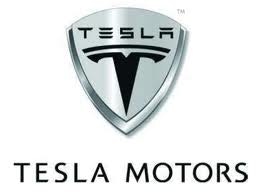Another green-car dream appears to be biting the dust. Fisker Automotive said this week that it will lay off 75% of its workforce, as the maker of the hybrid Karma luxury sedan appears to be running out of cash.
In recent months, Fisker had been seeking a major automaker to partner with in an effort to fund continued operations. But after talks with a Chinese automaker collapsed in March, it became clear that Fisker was running short of options.
A promising debut, followed by a streak of challenges
Fisker, based in Anaheim, Calif., drew global headlines when it launched the Karma, one of the first “plug-in” hybrids, way back in 2008. The sedan drew raves for its sharp styling, created by company founder Henrik Fisker, who had previously worked as a designer for BMW and Aston Martin.

The Karma also helped launch the idea of a luxury “green” car segment, a market that several global automakers — as well as another California green-car start-up, Tesla Motors Inc (NASDAQ:TSLA) — have since entered.
But that was arguably the high point in the company’s history. Years of delays in getting the car certified for U.S. sale — a complex and expensive process that has undone many prior auto start-ups — meant that Fisker didn’t actually start delivering Karmas to customers until late 2011.
Production cars lead to even more troubles for Fisker
But even then, things didn’t go well. A Texas house fire in early 2012 was blamed on a malfunctioning Karma, which fueled concerns about electric-car batteries that had arisen after a crash-tested Chevrolet Volt had caught fire the year before.
The fact that the Volt was eventually declared safe didn’t help Fisker much, especially after 16 more Karmas caught fire in New Jersey after being submerged in the wake of Hurricane Sandy. Nor did the collapse of Fisker’s battery supplier, A123 Systems — a collapse that had a lot to do with Fisker’s struggles — and its subsequent acquisition by a Chinese firm do much to help matters.
By then, it was too late. Fisker had run through much of its capital, including $193 million in loans from the U.S. government. No more loans were likely, as the feds had halted further financing in 2011 after Fisker had failed to meet a series of milestones.
Its only hope was to seek a partner, but after talks with China’s Dongfeng Motor Group collapsed last month, hopes faded.
The upshot: Tesla notwithstanding, sarting a car business is really, really hard
Fisker’s experience points to just how hard it is to launch a new automaker from scratch. While Tesla Motors Inc (NASDAQ:TSLA) is on the verge of a profitable quarter, thanks to near-flawless execution on an audacious business plan, Tesla Motors Inc (NASDAQ:TSLA) is really the exception that proves the rule.
The last automaker to be started from scratch and become an enduring presence on the global stage before Tesla Motors Inc (NASDAQ:TSLA) was tiny supercar maker Lamborghini, way back in 1963. Lots of ventures have been tried since then. But as Fisker’s experience shows, the obstacles to success are formidable.
Designing and building cars to modern global standards of quality, reliability, and safety is hard, as several Chinese automakers have discovered the hard way.
Securing the funding to take a car from design to production — a process that can take years, and require big investments along the way — and securing the necessary government approvals to offer the car for sale are also daunting tasks for anyone who isn’t an established global automaker.
So far, Tesla Motors Inc (NASDAQ:TSLA) has succeeded where Fisker and countless others have failed. But even for Tesla Motors Inc (NASDAQ:TSLA), a still-tiny player in an industry dominated by global giants, the challenges ahead remain formidable.
The article Another Green-Car Startup Hits the Wall originally appeared on Fool.com.
Fool contributor John Rosevear has no position in any stocks mentioned. Follow him on Twitter at @jrosevear. The Motley Fool recommends BMW and Tesla Motors and owns shares of Tesla Motors.
Copyright © 1995 – 2013 The Motley Fool, LLC. All rights reserved. The Motley Fool has a disclosure policy.
